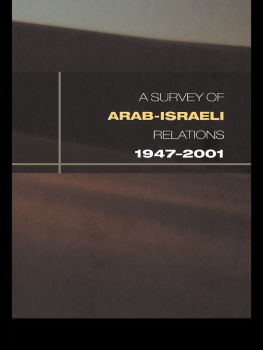THE ISRAELI ECONOMY
The Princeton Economic History of the Western World
Joel Mokyr, Series Editor
A list of titles in this series appears in the back of the book.
The Israeli Economy
A Story of Success and Costs
Joseph Zeira
PRINCETON UNIVERSITY PRESS
PRINCETON AND OXFORD
Copyright 2021 by Princeton University Press
Princeton University Press is committed to the protection of copyright and the intellectual property our authors entrust to us. Copyright promotes the progress and integrity of knowledge. Thank you for supporting free speech and the global exchange of ideas by purchasing an authorized edition of this book. If you wish to reproduce or distribute any part of it in any form, please obtain permission.
Requests for permission to reproduce material from this work should be sent to
Published by Princeton University Press
41 William Street, Princeton, New Jersey 08540
6 Oxford Street, Woodstock, Oxfordshire OX20 1TR
press.princeton.edu
All Rights Reserved
ISBN 978-0-691-19945-0
ISBN (e-book) 978-0-691-22970-6
Version 1.0
British Library Cataloging-in-Publication Data is available
Editorial: Joe Jackson and Josh Drake
Production Editorial: Jenny Wolkowicki
Jacket design: Pamela L. Schnitter
Production: Danielle Amatucci
Publicity: James Schneider and Kathryn Stevens
Copyeditor: Cyd Westmoreland
Jacket credit: Fruit and vegetable stalls at Mahane Yehuda market, Jerusalem, Israel / Yadid Levy / Alamy Stock Photo
To my wife Anat Zeira and to my daughters,
Noa and Yuli Zeira
With love and gratitude
CONTENTS
- xiii
- xix
PREFACE
This book tells the story of the economy of Israel. It is a small country of only 9 million people, but I strongly believe that its story should be of interest to people from other countries as well. One reason for this interest is that Israel has experienced large shocks during its short history, such as large immigration waves, intense wars, the negotiation and implementation of peace treaties, and more. These shocks hit the small economy strongly and thus enable us to isolate their economic effects and to analyze them. In other words, Israel has been a unique laboratory, with many natural experiments, which enable us to examine economic mechanisms in a fascinating way.
A second reason the Israeli economy should be interesting to non-Israelis is that Israel is located in the heart of the Middle East, an area of great importance to the world. First, it is important geographically, as it connects three major continents, Asia, Africa, and Europe. Second, it is rich with oil, which adds to its significance politically and economically. Third, it is the birthplace of the three major monotheistic religions, of which two, Judaism and Christianity, where born in the country of Israel. As a result of this importance, the country and the region have always attracted foreign conquerors and rulers, like Egypt, Assyria, Babylon, Greece and Rome in ancient times; the Arabs, Crusaders, and Ottomans in the Middle Ages; Britain and France in the twentieth century; and now the United States.
Today, Israel plays an important role in the Middle East. Unlike other countries in the region, its population is largely not indigenous but consists mostly of immigrants and their descendants. Many came from Europe, but many others came from other areas of the region itself: these are the Jews from the Middle East and North Africa. More importantly, the immigration to and colonization of the country gained much support from the big powers, Britain first and the United States later. To this day, many view Israel as alien to the Middle East.Today Israel is a major power in the Middle East, militarily, economically, and politically, so it is impossible to understand the region without understanding Israel and its phenomenal success.
The book has four main parts, which follow a historical background. History is highly important for understanding any economy, because if we wish to apply economic theory to any country, we cannot do so blindly. We need to thoroughly understand the specific circumstances in which the economy develops and operates in order to use economic theory properly to understand it.
shows that Israeli economic growth was not a miracle and that standard economic theory, together with the unique history of Israel, can fully account for it.
, the last chapter in this part, discusses additional aspects of economic growth in Israel. It analyzes the huge success of the high-tech sector but raises some questions about how much this sector has contributed to aggregate economic growth in the country. The chapter also studies the rate of fertility in Israel, which is very high by international comparisons. The chapter then raises the question of why Israel did not fully catch up with the frontier and why its labor productivity is still significantly below that of the most economically advanced countries in the world. It shows that a large part of this missing productivity is due to missing capital, caused by the risks of the Israeli-Arab conflict.
.
describes Israeli business cycles and shows that due to the large shocks that hit Israel, we can identify the shock that began each recession and the shock that ended it. Interestingly, except for one recession, all reflect domestic shocks. Hence, business cycles of Israel did not correspond to global cycles. A second lesson from this chapter is that all business cycles in Israel were demand driven. A third lesson is that returning to the narrow Israeli-Palestinian conflict in the 1980s increased the countrys vulnerability to business cycles.
analyzes the long process of disinflation that followed the 1985 stabilization program. It shows that this long process fits well the theory of the Phillips Curve.
examines the high level of inequality in Israel. It shows that the neoliberal policies, especially the reduction of direct taxes and of welfare subsidies, increased inequality significantly.
Forty-two years ago, I switched from the study of mathematics to economics. One of the reasons for this transition was my growing interest in social and political questions. I was hoping that understanding economics could help me answer these questions better. Since then, I have studied, taught, and done research in economics. Gradually I realized that the connection between economic understanding and solving social and political problems is not so simple. On one hand, understanding economics has enabled me to examine critically many political claims and to tell when they are fact based, when they rely on illusions, and when they are based on deception. On the other hand, I have learned that understanding economics does not always provide clear answers to important political questions, as these questions also depend on worldview and on social values, which can differ from one person to another, even if the individuals share the same economic knowledge.
An important and wise economist, Frank Hahn, once said that economics does not solve the major disputes between us, but it helps us understand better our differences. I believe that this is a great truth. The way I understand it is that economics should open options instead of closing them. Namely, there is no such animal as the right economic policy. There are many possible economic policies, and economists can study the costs and benefits of each policy to different groups in society. However, the choice among different economic policies is a political decision. Hence, this book is not trying to prescribe what economic policies Israel should follow, as many books in the past have done, but rather to better understand the different options and their implications.








